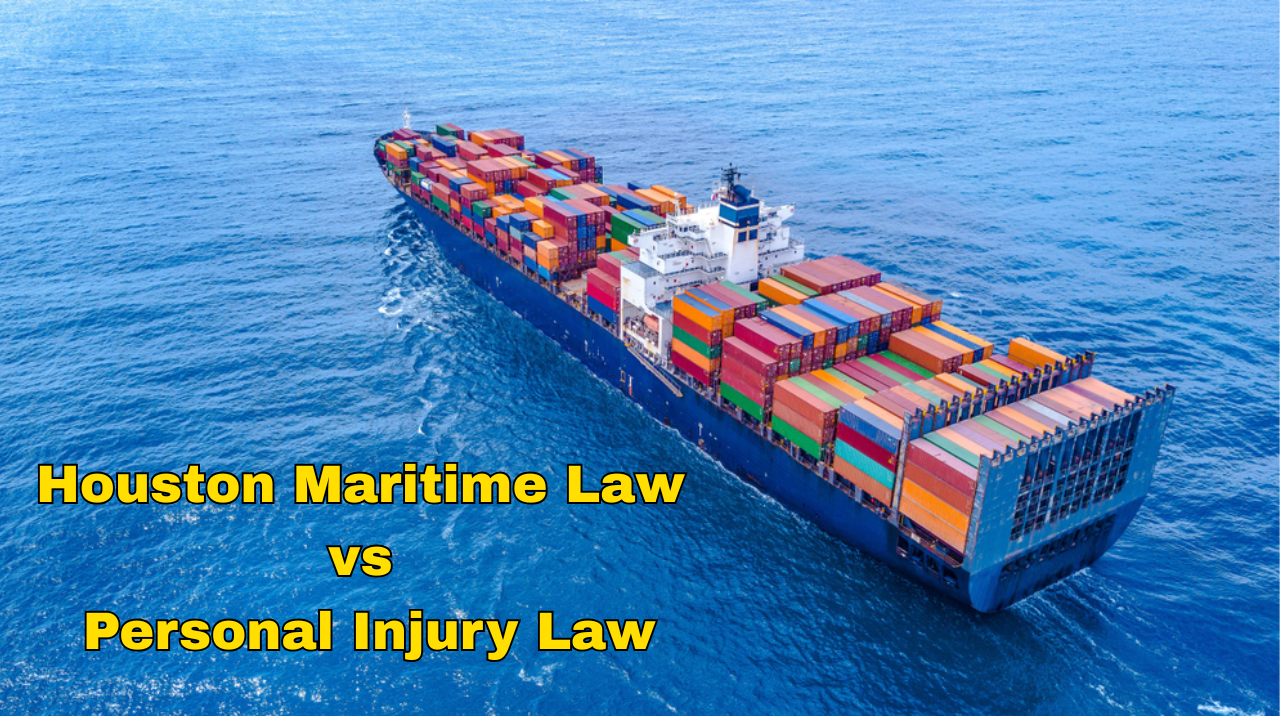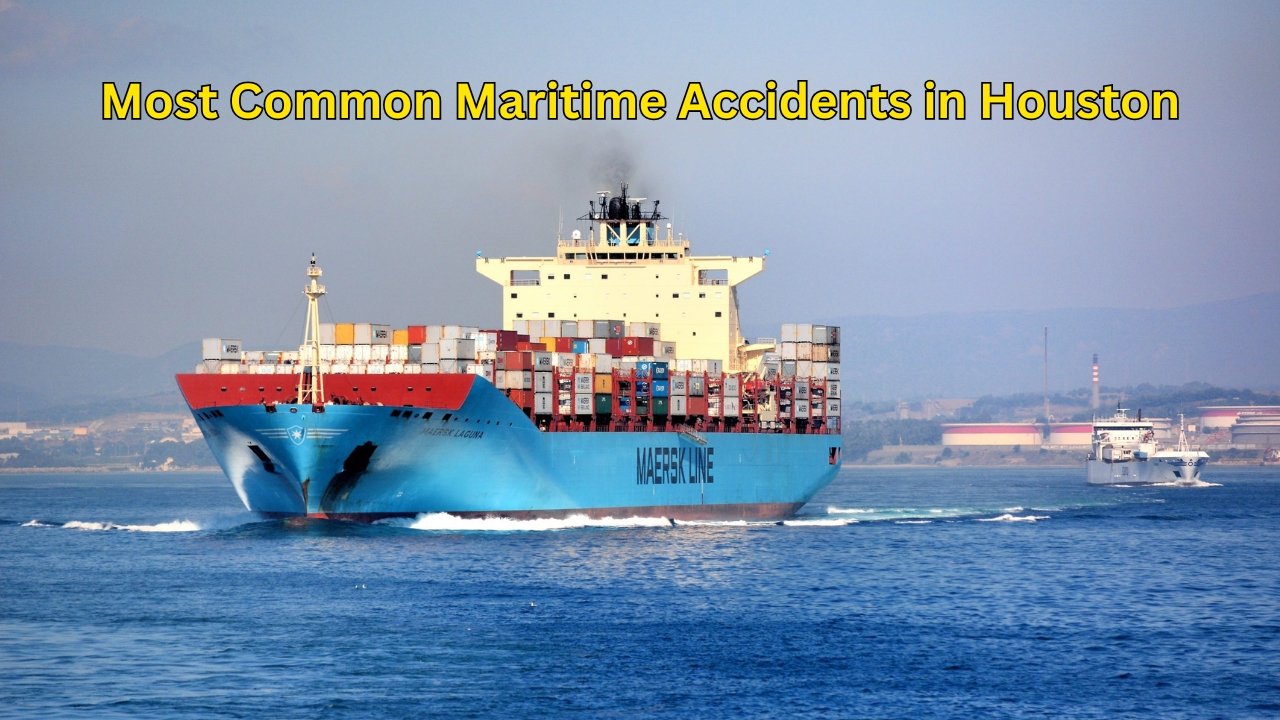Originally posted on September 20, 2025 @ 1:18 AM
Top Maritime Laws: Working at sea is both rewarding and risky. Seamen and offshore workers in Houston face daily challenges—from heavy machinery to unpredictable weather—that can lead to serious accidents. Fortunately, several top maritime laws exist to protect workers and ensure they receive fair treatment and compensation when accidents occur. In this guide, we’ll break down the most important maritime laws, explain how they apply to offshore workers in Houston, and highlight why understanding them is essential for your safety and financial security.
Why Maritime Laws Matter for Offshore Workers
Maritime work is unlike any other. Unlike land-based jobs, seamen and offshore workers are governed by a different set of laws, collectively known as maritime or admiralty law. These laws provide rights, protections, and remedies for workers who are injured or face unsafe conditions at sea.
By understanding the top maritime laws, workers can better navigate their rights, avoid exploitation, and know when to seek legal help from a Houston maritime attorney.
Top Maritime Laws Every Seaman Should Know
Let’s dive into the most important laws that shape the rights of seamen and offshore workers in Houston and beyond.
1. The Jones Act
Perhaps the most well-known maritime law, the Jones Act gives seamen the right to sue their employers if negligence contributed to their injuries.
Key points of the Jones Act:
Applies to workers who spend at least 30% of their time working on a vessel in navigable waters.
Allows injured seamen to file claims for medical expenses, lost wages, pain and suffering, and future earning capacity.
Requires proof of employer negligence, but the standard is lower compared to traditional personal injury laws.
For offshore workers in Houston, the Jones Act is a lifeline when employers fail to provide safe working conditions.
2. Longshore and Harbor Workers’ Compensation Act (LHWCA)
Not all maritime workers qualify as “seamen” under the Jones Act. For those who don’t, the LHWCA provides compensation.
The LHWCA covers:
Dock workers, harbor workers, and shipbuilders
Injuries occurring near navigable waters or adjoining areas like piers and shipyards
Benefits such as medical care, wage replacement, and disability compensation
This law ensures that even if you don’t qualify under the Jones Act, you still have legal protections after an offshore or harbor-related accident.
3. Maintenance and Cure
Separate from the Jones Act, maintenance and cure is an ancient maritime principle requiring shipowners to care for injured seamen.
Maintenance covers daily living expenses such as food and housing while you recover.
Cure pays for reasonable medical treatment until you reach maximum medical recovery.
This obligation applies regardless of who was at fault for the injury, making it one of the most important top maritime laws for injured seamen.
4. Death on the High Seas Act (DOHSA)
Tragically, some offshore accidents result in fatalities. The DOHSA allows surviving family members to seek compensation when a loved one dies due to wrongful acts, negligence, or unseaworthy conditions more than three miles offshore.
This law provides financial relief for families who have lost their main source of support in dangerous offshore environments.
5. General Maritime Law
Beyond specific statutes, general maritime law provides additional rights, including:
Protection against unseaworthy vessels (if a ship is not safe, its owner can be held liable).
Claims for injuries caused by unsafe working conditions.
Rights to proper medical treatment and fair treatment while at sea.
General maritime law fills in the gaps left by specific laws, ensuring broader protections for offshore workers.
How These Laws Protect Houston Offshore Workers
Houston is one of the busiest maritime hubs in the U.S., with offshore oil rigs, shipping companies, and ports driving its economy. Because of this, seamen and offshore workers in the region are especially at risk of injury.
Understanding the top maritime laws can help Houston workers:
Identify whether they qualify as a seaman under the Jones Act.
Claim benefits under the LHWCA if they’re a dock or harbor worker.
Demand maintenance and cure after an injury.
Protect their families through the DOHSA in case of wrongful death.
Why You Should Consult a Maritime Attorney
Maritime law is complex, and determining which statute applies to your case isn’t always straightforward. A skilled Houston maritime attorney can:
Evaluate whether you qualify as a seaman under the Jones Act.
Guide you through filing claims under the LHWCA.
Ensure you receive full maintenance and cure benefits.
Represent you in court if your employer disputes liability.
For seamen and offshore workers in Houston, consulting with an attorney is often the difference between fair compensation and financial hardship.
Conclusion
Working offshore brings unique risks, but it also comes with unique protections. From the Jones Act to the LHWCA, top maritime laws ensure that seamen and offshore workers in Houston have legal rights when accidents happen.
By learning about these laws, you can safeguard your future, protect your family, and ensure you’re not left vulnerable after an injury. If you’re ever unsure about your rights, speaking with a Houston maritime attorney is the best way to get clear answers and strong representation.
FAQs About Top Maritime Laws
Q1: Do all offshore workers qualify under the Jones Act?
No. To qualify, you must spend at least 30% of your working time on a vessel in navigable waters.
Q2: What’s the difference between the Jones Act and the LHWCA?
The Jones Act covers seamen, while the LHWCA protects harbor and dock workers who don’t qualify as seamen.
Q3: What does “maintenance and cure” cover?
It covers basic living expenses and medical treatment until you’ve reached maximum recovery.
Q4: Can families file claims if a worker dies offshore?
Yes. Under the DOHSA, families can pursue compensation for wrongful deaths occurring beyond three miles offshore.
Q5: Do maritime laws apply in Houston specifically?
Yes. Because Houston is a major maritime hub, these laws frequently apply to local offshore accidents and injuries.


